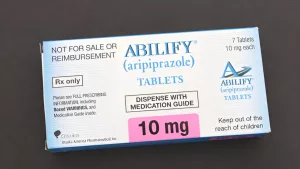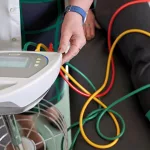Short answer: Stopping a bipolar medication without a doctor’s plan can trigger mood swings, relapse, or even dangerous withdrawal symptoms. Bottom line: If you’re thinking about quitting, talk to your prescriber first and follow a gradual taper under professional supervision.
I get it—you’re probably dealing with side‑effects, costs, or the ache of feeling “tied” to a pill. You’re not alone, and you definitely don’t have to suffer in silence. Let’s walk through what you need to know, step by step, so you can make an informed, safe decision about stopping bipolar medication.
Why People Want to Stop
Everyone’s story is different, but a handful of reasons keep showing up when people talk about wanting to stop their meds.
- Stigma. It hurts to feel judged for needing a pill, and the label “psychiatric medication” can feel like a badge of weakness.
- Side‑effects. Weight gain, tremor, sexual dysfunction, or feeling “zoned out” can make daily life a struggle.
- Feeling better. When mood stabilizes, the temptation to think “I don’t need this anymore” is strong.
- Desire for independence. Long‑term treatment can feel like a cage; many crave a sense of control.
- Financial pressure. Not everyone has insurance that covers pricey mood stabilizers.
All of those reasons are valid feelings. The question is: what’s the safest way to address them? In some cases—like a planned medication‑free trial after a long period of remission—doctors may agree to a short break (see NAMI’s guidance on stopping medications). But most of the time, a careful taper is the gold standard.
Risks of Abrupt Stop
Imagine pulling the plug on a car engine while it’s still running. The sudden loss of power can cause a lot of chaos. The same idea applies to the brain’s chemistry when you do an abrupt med stop.
In the first few days to weeks, you might notice:
- Mood changes—irritability, anxiety, or racing thoughts.
- Sleep disturbances—insomnia or excessive sleep.
- Physical symptoms—hand tremors, increased urination, or a dry mouth.
- Even suicidal thoughts, especially if the medication was keeping depressive spikes at bay.
Long‑term, the danger grows. A sudden quit can destabilize your condition, making future episodes more severe and harder to treat. According to Healthline, restarting a medication after a break may not work as effectively as before, and repeated stops increase the risk of treatment non‑compliance—a major hurdle for clinicians.
Even lithium, which doesn’t cause classic withdrawal, can lead to a surge of mania or depression if stopped cold turkey. Studies have reported hand tremors, excessive thirst, and rapid mood shifts after a sudden halt (PsychCentral).
Create a Safe Plan
Think of a taper as a gentle fade‑out rather than a switch. Here’s a checklist you can run through with your prescriber:
- Review your medication profile. What class are you on—mood stabilizer, antipsychotic, or adjunct antidepressant? Different drugs have different half‑lives, which affect how quickly you can drop the dose.
- Set clear goals. Are you aiming for a complete stop, a switch to another drug, or just reducing side‑effects?
- Build a taper schedule. A common rule of thumb: reduce the dose by 10‑20 % every 1‑2 weeks, but high‑dose or long‑term users may need a slower pace.
- Choose tracking tools. Mood‑chart apps, a simple notebook, or even a spreadsheet can help spot early warning signs.
- Identify red‑flags. Anything that looks like a return of mania, deep depression, or suicidal thoughts should trigger an immediate call to your doctor.
Below is an example taper for a typical antipsychotic (e.g., quetiapine). Adjust the numbers to match your specific medication and dosage.
| Week | Current Dose | Reduced Dose |
|---|---|---|
| 1 | 200 mg nightly | 180 mg (10 % reduction) |
| 2 | 180 mg | 160 mg |
| 3‑4 | 160 mg | 140 mg |
| 5‑6 | 140 mg | 120 mg |
| 7‑8 | 120 mg | 100 mg |
| 9‑10 | 100 mg | 80 mg |
| 11‑12 | 80 mg | 60 mg |
| 13‑14 | 60 mg | 40 mg |
| 15‑16 | 40 mg | 20 mg |
| 17‑18 | 20 mg | 0 mg (stop) |
Remember, this is just a template. Your doctor may suggest a slower or faster pace based on how you’ve responded in the past, the specific drug’s half‑life, and any previous relapses.
Manage Withdrawal Symptoms
Even with a careful taper, you might still feel a little off. Here are some practical ways to soothe those bumps:
- Sleep hygiene. Keep a consistent bedtime, dim lights an hour before sleep, and avoid caffeine after noon.
- Physical activity. A daily walk or gentle yoga can lower anxiety and improve mood stability.
- Mindfulness & breathing. Simple 5‑minute diaphragmatic breathing exercises have been shown to reduce racing thoughts during taper weeks.
- Hydration and nutrition. Especially important if you’re on lithium, which can increase thirst and urination.
- Peer support. Groups like NAMI’s “Medication Management” meetings let you hear from folks who’ve walked this path.
If any symptom feels severe—say, a sudden surge of mania or intense depressive thoughts—contact your prescriber right away. Early intervention can prevent a full‑blown episode.
Alternatives While Tapering
Often the goal isn’t “stop everything” but “reduce the burden while staying well.” Here are some evidence‑based complements that can help you lean less on medication:
- Cognitive‑Behavioral Therapy for Insomnia (CBT‑I). Improves sleep without extra drugs.
- Dialectical Behavior Therapy (DBT). Great for managing mood swings and emotional dysregulation.
- Consistent daily routine. Regular meals, exercise, and light exposure can stabilise circadian rhythms—one of the biggest mood‑regulating systems.
- Omega‑3 supplements. Small studies suggest they may modestly boost mood‑stability when combined with a taper.
- Medication switches. If side‑effects are your main hurdle, a doctor may transition you to a less sedating antipsychotic or a different mood stabilizer.
All these options work best when they’re part of a collaborative plan with your healthcare team. Never replace a medication on your own, but feel free to discuss these alternatives during your next appointment.
Expert Insight
We’ve all heard the phrase “listen to the experts.” Here’s a quick roundup of voices you might hear in the field:
- Dr. John Preston (HealthyPlace) stresses the importance of timing—take a sedating drug at night, a stimulating one in the morning.
- Dr. Michael Banov (Psych Central) reminds us that the “right reason” to stop is critical; a rushed decision can backfire.
- Research from psychiatric journals shows that gradual tapering dramatically reduces the risk of rehospitalisation compared with abrupt cessation (see study on relapse rates).
Adding personal stories can also ground the science. Take Jamie, a 32‑year‑old who stopped her lithium cold turkey after a “good” year. Within ten days, she experienced severe insomnia, tremors, and a manic surge that landed her in the ER. After a supervised taper, she now feels stable and reports far fewer side‑effects because she and her psychiatrist fine‑tuned the dose along the way.
Bottom‑Line Takeaway
Stopping bipolar medication is a serious decision—not a DIY project. The safest route is a doctor‑guided taper, diligent symptom tracking, and supportive therapies to cushion the transition. Recognise why you’re considering a change, weigh short‑term relief against long‑term stability, and never hesitate to reach out for help the moment warning signs appear. Your mental health is worth the conversation; schedule a chat with your prescriber today and use the taper chart above as a clear starting point.
Got thoughts or personal experiences about tapering? Share them in the comments—your story could be exactly the nudge someone else needs.






















Leave a Reply
You must be logged in to post a comment.